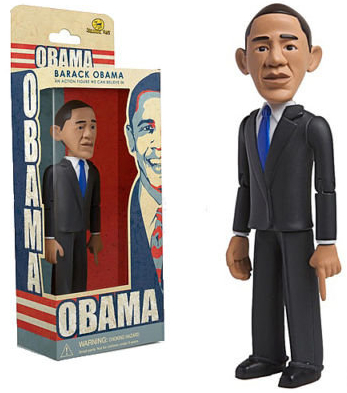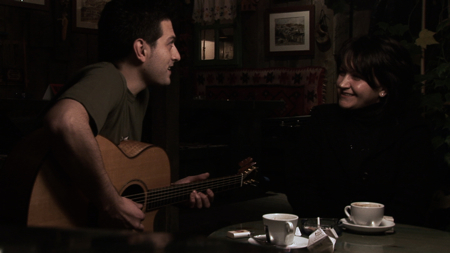By Jason Apuzzo. Prince of Persia is opening this weekend, a Jerry Bruckheimer film based on a video game and starring an American guy of Swedish descent in the lead. If that’s your type of cinema, feel free to knock yourself out this weekend – but I thought that for the heck of it I would briefly review a marvelous film that’s still out in theaters right now and that was made by (and about) actual Persians. It’s a little indie gem called No One Knows About Persian Cats, which won the Special Jury Prize in the Un Certain Regard section of last year’s Cannes Film Festival.
Persian Cats is about two young Iranian rock musicians – a naive young guy and his cute, shrewd girlfriend – who are planning an indie rock gig for themselves in London just after having been released from prison. The film takes place in the underground rock scene of Tehran, where such imprisonments are apparently common. Hoping to snag fake passports and visas for themselves, the two young people spend much of the film meandering through the underground rock scene of Tehran – much of which is literally underground – trying to convince other musicians to join them in their attempt to get out of the country.
 What makes Persian Cats so compelling – even somewhat shocking – is how utterly Westernized the young kids and their musical compatriots are. There was a period of my life when I spent a lot of time around musicians, and Persian Cats almost feels like a documentary about struggling young musicians in New York or LA – except in this case, these young kids are literally struggling to launch their careers under a death threat. As tragic as the circumstances are, though, the film makes it abundantly clear that American culture – and the freedom it embodies – is seeping through the pores of Iranian society to a degree far beyond what the regime there can control.
What makes Persian Cats so compelling – even somewhat shocking – is how utterly Westernized the young kids and their musical compatriots are. There was a period of my life when I spent a lot of time around musicians, and Persian Cats almost feels like a documentary about struggling young musicians in New York or LA – except in this case, these young kids are literally struggling to launch their careers under a death threat. As tragic as the circumstances are, though, the film makes it abundantly clear that American culture – and the freedom it embodies – is seeping through the pores of Iranian society to a degree far beyond what the regime there can control.
Persian Cats is directed by Bahman Ghobadi (A Time for Drunken Horses, Marooned in Iraq), and this is the second film of Ghobadi’s to deal with Iranian restrictions against women singing. [In Iran, it’s illegal for women to perform even traditional Persian music in public, so don’t expect Lady Gaga to appear there any time soon.] Ghobadi’s Marooned in Iraq dealt with a Kurdish man helping his ex-wife flee Iran subsequent to the ban on women performing. Persian Cats thematically picks up where that film left off, although this film is considerably more dynamic – and, indeed, more musical than its predecessor.
The film’s two leads are played by Negar Shaghaghi and Ashkan Koshanejad, both real-life figures of Iran’s alt-rock scene. In their mission to re-assemble their band (Take It Easy Hospital) and purchase forged passports and visas to exit the country, they encounter a variety of colorful figures – the most amusing being Nader (played by Hamed Behdad), a fast-talking agent-fixer. Behdad gives what is to me the stand-out performance of the film, particularly when at one point he grovels his way out of being lashed by the authorities.
 Acting performances really are secondary, though, to the music and cinematography of the film. Cinematographer Turaj Mansuri draws deeply saturated colors out of the Tehranian night, and the indie-alt soundtrack features some nice numbers that are still swimming around in my head. The film is otherwise shot and edited very much like a documentary – and whereas the ‘documentary-realist’ style comes across in most films as an affectation, here it works perfectly. Persian Cats has a mellow, bouncy, improvised feeling to it – there’s not a moment that’s forced or contrived. And the acting itself feels improvised, although that may be because the cast members were apparently playing thinly veiled versions of themselves.
Acting performances really are secondary, though, to the music and cinematography of the film. Cinematographer Turaj Mansuri draws deeply saturated colors out of the Tehranian night, and the indie-alt soundtrack features some nice numbers that are still swimming around in my head. The film is otherwise shot and edited very much like a documentary – and whereas the ‘documentary-realist’ style comes across in most films as an affectation, here it works perfectly. Persian Cats has a mellow, bouncy, improvised feeling to it – there’s not a moment that’s forced or contrived. And the acting itself feels improvised, although that may be because the cast members were apparently playing thinly veiled versions of themselves.
Persian Cats was co-written and executive produced by Roxana Saberi, the Iranian-American journalist who was imprisoned in Iran last year on trumped-up ‘espionage’ charges. And there is, ultimately, an aura of the ex-patriot about the whole production. Persian Cats feels like a film made by – and for – a younger generation who have mentally and emotionally checked-out of contemporary Iran, even when they’re still living there. That’s both encouraging and disheartening. Persian Cats is ultimately a film about young kids living free lives … for as long as they can keep the cage door open. That cage door is always there, though, as certain events late in the film make poignantly clear.
Congratulations to everyone involved in this film for making such a light, sweet and stylish feature about what is otherwise an ongoing tragedy. Persian Cats is not going to bring down the regime in Tehran – but perhaps someday when the mullahs are gone, it will remind people that not even that horrible regime could stop young people from rocking.
No One Knows About Persian Cats is still playing in select theaters (see here), and the DVD will be available on July 26th. You can also catch it right now on video-on-demand on a variety of cable networks (I caught it recently in gorgeous high-definition on Cox cable).

